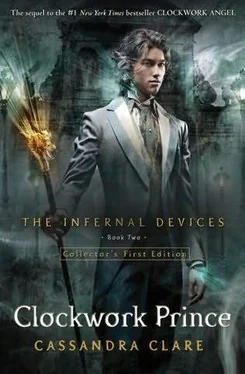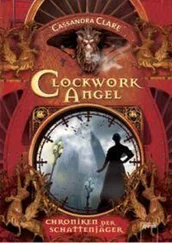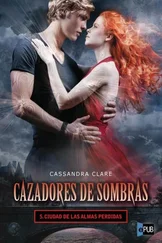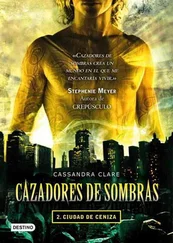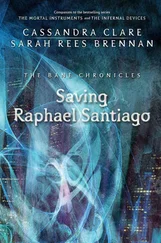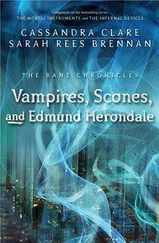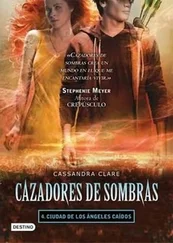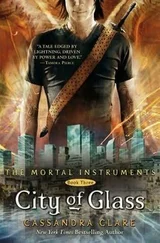“I had thought,” Charlotte said, haltingly, “that perhaps London’s Downworlders felt betrayed by the Institute, after what happened with de Quincey. His death—”
Scott adjusted his monocle. As he did, light flashed along the gold band he wore around his index finger. Words gleamed out against it: L’art pour l’art. “Was the best surprise I’ve had since I discovered the Savoy Turkish Baths on Jermyn Street. I despised de Quincey. Loathed him with every fiber of my being.”
“Well, the Night Children and the Moon’s Children’s have never quite—”
“De Quincey had a werewolf killed,” Tessa said suddenly, her memories mixing with Camille’s, with the recollection of a pair of yellow-green eyes like Scott’s. “For his—attachment—to Camille Belcourt.”
Woolsey Scott turned a long, curious look on Tessa. “That,” he said, “was my brother. My older brother. He was pack leader before me, you see, and I inherited the post. Usually one must kill to become pack leader. In my case, it was put to a vote, and the task of avenging my brother in the name of the pack was mine. Only now, you see—” He gestured with an elegant hand. “You’ve taken care of de Quincey for me. You’ve no idea how grateful I am.” He cocked his head to the side. “Did he die well?”
“He died screaming.” Charlotte’s bluntness startled Tessa.
“What a beautiful thing to hear.” Scott put down his teacup. “For this you have earned a favor. I will tell you what I know, though it isn’t much. Mortmain came to me in the early days, wanting me to join with him in the Pandemonium Club. I refused, for de Quincey had already joined, and I would not be part of a club that had him in it. Mortmain let me know there would be a place for me should I change my mind—”
“Did he tell you of his goals?” Will interrupted. “Of the ultimate purpose of the club?”
“The destruction of all Shadowhunters,” said Scott. “I rather thought you knew that. It isn’t a gardening club.”
“He has a grudge, we think,” said Charlotte. “Against the Clave. Shadowhunters killed his parents some years ago. They were warlocks, deep in the study of the black arts.”
“Less of a grudge, more of an idée fixe,” said Scott. “An obsession. He would see your kind wiped out, though he seems content to start with England and work his way out from there. A patient, methodical sort of madman. The worst kind.” He sat back in his chair and sighed. “News has reached me of a group of young wolves, unsworn to any pack, who have been doing some sort of underground work and have been getting paid very well for it. Flashing their tin around among the pack wolves and creating animosities. I did not know about the drug.”
“It will keep them working for him, night and day, until they drop from exhaustion or the drug kills them,” said Will. “And there is no cure for addiction to it. It is deadly.”
The werewolf’s yellow-green eyes met his. “This yin fen , this silver powder, it is what your friend James Carstairs is addicted to, isn’t it? And he’s alive.”
“Jem survives it because he is a Shadowhunter, and because he uses as little as possible, as infrequently as possible. And even then it will kill him in the end.” Will’s voice was deadly flat. “As would withdrawing from it.”
“Well, well,” said the werewolf breezily. “I do hope that the Magister’s merrily buying the stuff up doesn’t create a shortage, in that case.”
Will went white. It was clear the thought hadn’t occurred to him. Tessa turned toward Will, but he was already on his feet, moving toward the door. It shut behind him with a bang.
Charlotte frowned. “Lord, he’s off to Whitechapel again,” she said. “Was that necessary, Woolsey? I think you just terrified the poor boy, and probably for nothing.”
“Nothing wrong with a bit of foresight,” said Scott. “I took my own brother for granted, until de Quincey killed him.”
“De Quincey and the Magister were two of a kind—ruthless,” Charlotte said. “If you could help us—”
“The whole situation is certainly beastly,” observed Scott. “Unfortunately, lycanthropes who are not members of my pack are not my responsibility.”
“If you could simply send out feelers , Mr. Scott. Any bit of information about where they are working or what they are doing could be invaluable. The Clave would be grateful.”
“Oh, the Clave ,” said Scott, as if deadly bored. “Very well. Now, Charlotte. Let us talk about you.”
“Oh, but I am very dull,” said Charlotte, and she—quite deliberately, Tessa was sure—upset the teapot. It struck the table with a gratifying bang, spilling hot water. Scott jumped up with a cry, flipping his scarf out of the way of danger. Charlotte rose to her feet, clucking. “Woolsey, dear,” she said, placing a hand on his arm, “you’ve been such a help. Let me show you out. There’s an antique keris that was sent to us from the Bombay Institute I’ve just been yearning to show you. . . .”
Your woe hath been my anguish; yea, I quail
And perish in your perishing unblest.
And I have searched the highths and depths, the scope
Of all our universe, with desperate hope
To find some solace for your wild unrest.
—James Thomson, “The City of Dreadful Night”
To my dear Mrs. Branwell—
You may be surprised to receive a letter from me so soon after my departure from London, but despite the sleepiness of the countryside, events here have continued apace, and I thought it best to keep you abreast of developments.
The weather continues fine here, allowing me much time for exploring the countryside, especially the area around Ravenscar Manor, which is indeed a fine old building. The Herondale family appears to live alone there: only the father, Edmund; the mother; and the youngest daughter, Cecily, who is near to fifteen and very like her brother in restlessness, in manner, and in looks. I will arrive at how I know all that in a moment.
Ravenscar itself is near a small village. I set myself up at the local inn, the Black Swan, and posed as a gentleman interested in buying property in the area. The locals have been most forthcoming with information, and when they were not, a persuasion spell or two helped them to see the matter from my point of view.
It seems the Herondales mix very little with local society. Despite—or perhaps because of—this tendency, rumor about them abounds. It seems they do not own Ravenscar Manor but are indeed, by way of its custodians, watching over it for its true owner—Axel Mortmain, of course. Mortmain seems no one to these people but a wealthy industrialist who purchased a country manor he rarely visits; I encountered no rumor about any connection of his to the Shades, whose legacy here seems long forgotten. The Herondales themselves are a matter of curious speculation. It is known that they had a child who died, and that Edmund, whom I knew once, turned to drink and to gambling; eventually he gambled away their home in Wales, whereupon, destitute, they were offered the occupation of this house in Yorkshire by its owner. That was two years ago.
I had all this confirmed for me this afternoon when, watching the manor from a distance, I was startled by the appearance of a girl. I knew who she was immediately. I had seen her go in and out of the house, and her resemblance to her brother Will, as I said, is pronounced. She set into me at once, demanding to know why I was spying on her family. She did not seem angry at first but rather hopeful. “Did my brother send you?” she asked. “Have you any word of my brother?”
Читать дальше
